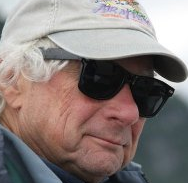Reflecting on History: America’s Presidents Exhibit
Seeing the portraits of all U.S. presidents in one compressed space and being reminded of all the crises and crossroads that confronted them had a surprising effect on me. Reliving the past made me feel more confident about the future.
Why? Because we’ve been here before. We tend to glorify our history, but that history wasn’t ordained. It’s a turbulent stew of decisions and events. And so many times in the past, it all could have turned out differently. And badly.
Jefferson’s Slim Victory and Monumental Impact
eeing Jefferson’s portrait is a reminder that he became president by the margin of one vote, only after 36 ballots cast by the U.S. House of Representatives and amid serious talk of splitting the new nation between the industrial North and the slave-owning agricultural South. Not only did the states stay together, without Jefferson there likely would have been no Louisiana Purchase and expansion of U.S. borders to the Pacific.
The Legacy of President Polk
There are no monuments in Washington to President James Polk, but Polk schemed the U.S. into a war with Mexico that resulted in the annexation of California, Nevada, Utah, New Mexico, most of Arizona and Colorado, and parts of Oklahoma, Kansas and Wyoming. Polk was elected president in 1844, defeating Henry Clay. Clay was not even fully supportive of annexing Texas a few years earlier. Polk’s popular vote was 49.5%. Clay’s 48.1. Congress agreed to go to war with Mexico by a one-vote margin.
Seward's Bold Vision
William Seward, as Lincoln’s secretary of state, arranged for the purchase of Alaska from the Russians, an act at the time widely considered so foolish it was popularly called “Seward’s folly.” At any other time, the Russian tsar might have kept Alaska for Russia or sold it to Great Britain’s Canada. But the Russians had just lost the Crimean war to a coalition that included England and he was not inclined to have British territory on Russia’s border. It’s doubtful that any other secretary of state at the time would have seen the Alaska purchase as an opportunity and would have been willing to risk personal ridicule by signing on to it.
The Narrow Margin of Tilden and Hayes
Samuel J. Tilden defeated Rutherford B. Hayes in the presidential election of 1876, but fell one vote short of an Electoral College majority. The decision went to the House, where Hayes was declared the winner after making a deal to withdraw U.S. troops from the South. That paved the way for nearly a century of Jim Crow laws. How different a history we might have had if Tilden’s electoral vote was 185 instead of 184.
Roosevelt's Leadership Amidst Turmoil
Theodore Roosevelt is remembered for many achievements, among them breaking up oil and railroad monopolies, and founding the National Park system. But his term was marked by violent coal miner strikes and talk of a second civil war. He injected the U.S. government into the conflict, managed to tamp down the flames and in the process, made union organizing respectable and lawful. Roosevelt became president only because as vice-president he succeeded the assassinated William McKinley. His Republican party never would have nominated him for president.
The Resilience of the American Experiment
U.S. history has been built upon the nation’s vast resources, its openness to immigration, its dedication to education, extraordinary invention, demonstrative courage. We’ve been led at various times by great leaders, and at other times by dullards and scoundrels. It’s been an uneven, sometimes unseemly, trek.
With this common denominator: After 228 years, we’re still together as a united nation, and still for the most part bound by the founding revolutionary idea, “Governments are instituted among Men, deriving their just powers from the consent of the governed.”
Like just about everyone else I know, there’s concern about what comes next. I’m more encouraged now, having been immersed in the turbulent past.
Go there yourself. View the entire online exhibit https://npg.si.edu/exhibition/americas-presidents-reopened.




